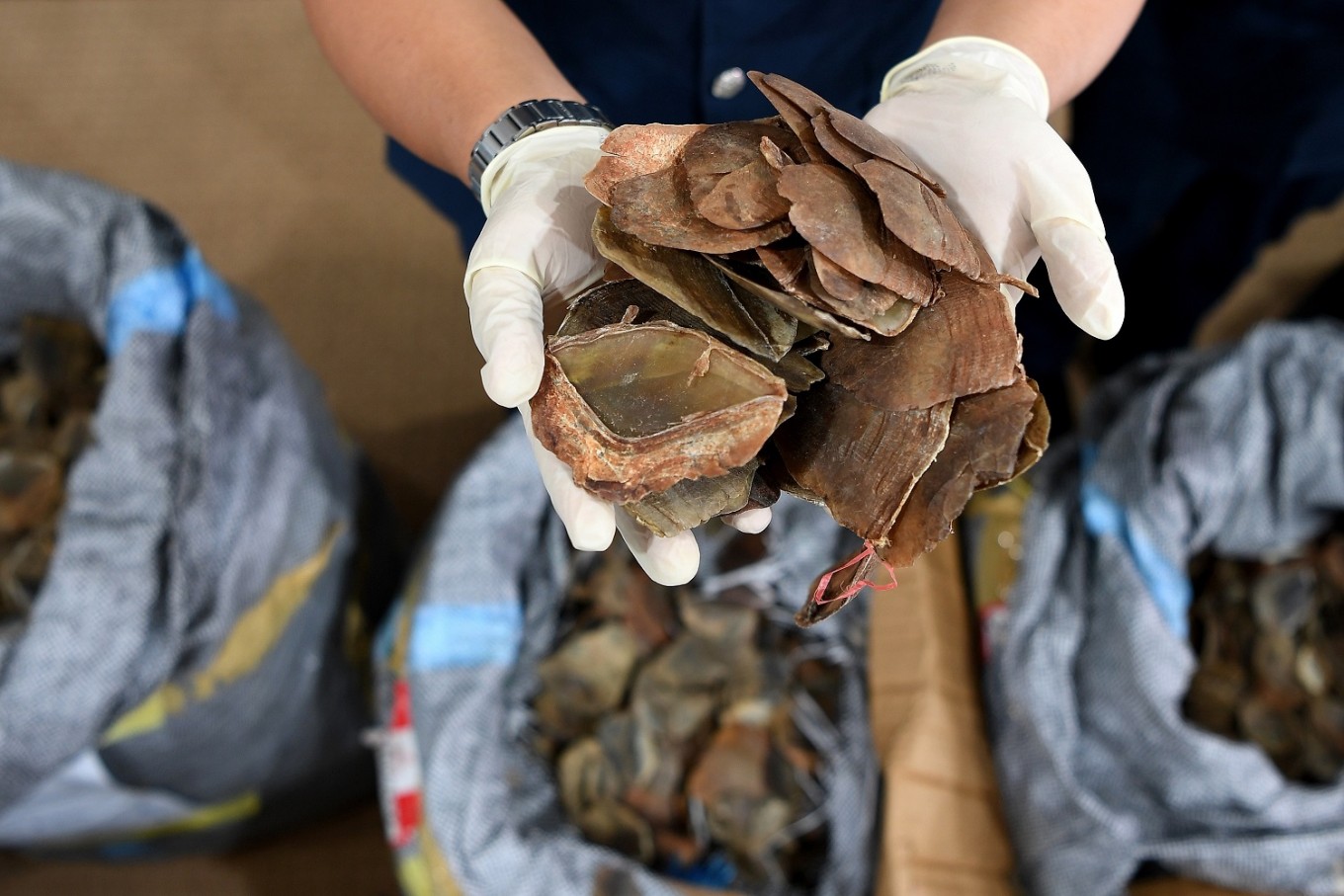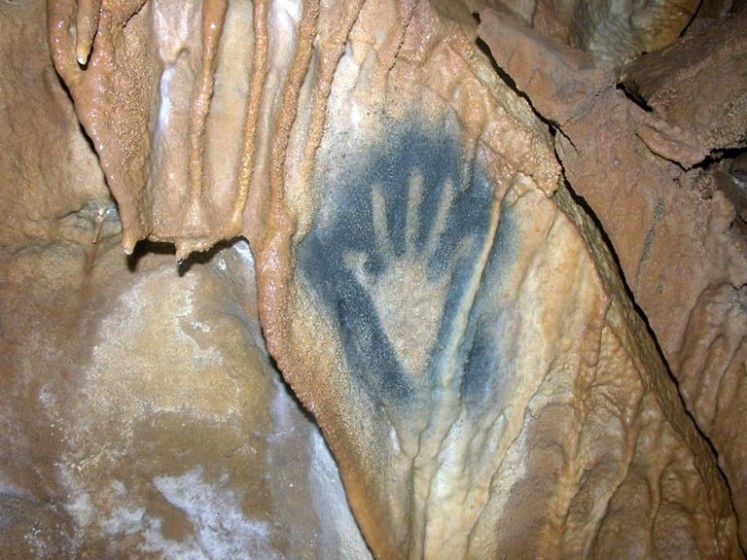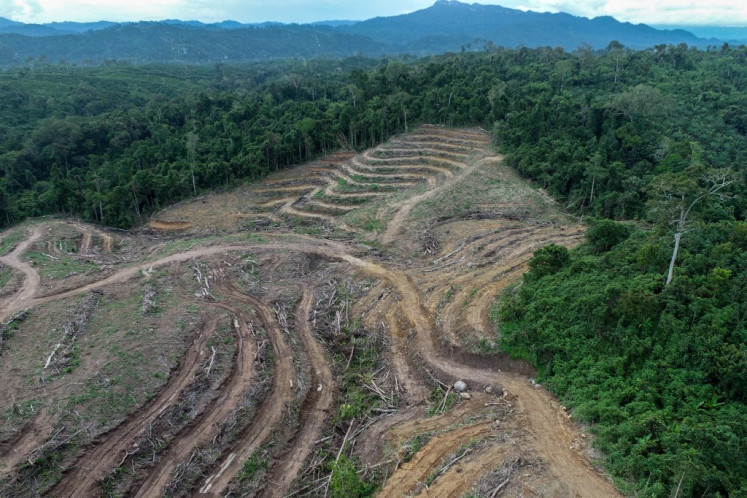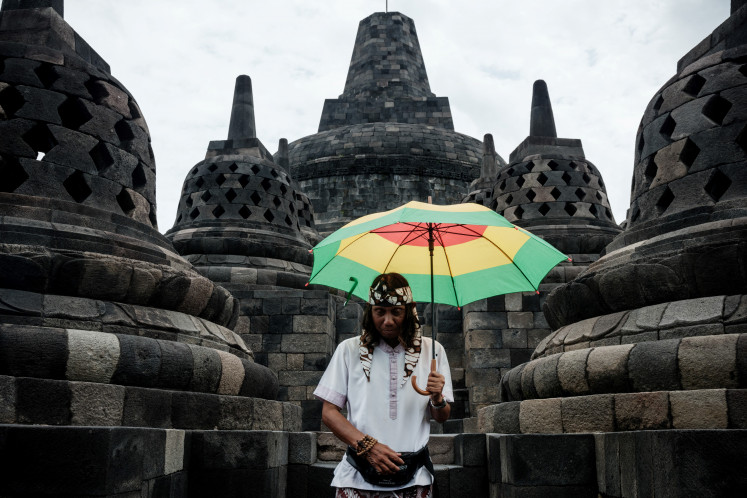Popular Reads
Top Results
Can't find what you're looking for?
View all search resultsPopular Reads
Top Results
Can't find what you're looking for?
View all search resultsRecord haul of pangolin scales seized in Malaysia
Change text size
Gift Premium Articles
to Anyone
 A Malaysian customs official poses with seized pangolin scales following a press conference at the Customs Complex in Sepang on May 8, 2017. Malaysian customs officers have seized more than 700 kilogrammes of pangolin scales worth 2.12 million USD, the country's largest haul of these scales, considered by some to have medicinal properties, officials said May 8. (AFP/Manan Vatsyayana)
A Malaysian customs official poses with seized pangolin scales following a press conference at the Customs Complex in Sepang on May 8, 2017. Malaysian customs officers have seized more than 700 kilogrammes of pangolin scales worth 2.12 million USD, the country's largest haul of these scales, considered by some to have medicinal properties, officials said May 8. (AFP/Manan Vatsyayana)
M
alaysian customs officers have seized more than 700 kilograms of pangolin scales, the country's largest haul of the scales considered by some to have medicinal properties, officials said Monday.
The 712kg (1,570 pound) haul worth 9,184,800 ringgit ($2.12 million) was made last week in two separate seizures.
On May 2, eight gunny sacks of the scales weighing 408kg were found at a Kuala Lumpur airport warehouse. They are believed to have arrived on a flight from Accra, Ghana, which transited in Dubai.
Two days later, 10 more sacks weighing 304kg were found and seized. These were supposedly on a flight from Kinshasa, DR Congo, to Nairobi, Kenya, transiting in Dubai before reaching Kuala Lumpur.
Malaysian officials say they are investigating.
Pangolins are indigenous to the jungles of Indonesia, parts of Malaysia and areas of southern Thailand, and their meat is considered a delicacy in China.
Read also: World's primates facing extinction crisis, new report says
Four pangolin species can also be found in Africa. A 2016 report by wildlife monitor TRAFFIC and the University of Adelaide indicated a rise in the African pangolin trade since 2000.
Increasingly they are smuggled to Southeast Asia from Africa, but the majority go to China.
The shy pangolin's brown scales are made of nothing more than keratin -- the same substance as fingernails -- but are highly prized in Vietnam and China where they are misleadingly touted as bearing medicinal properties.
Soaring demand for the products has seen an estimated one million pangolins plucked from Asian and African forests over the past decade.
The Convention on International Trade in Endangered Species (CITES) meeting in Johannesburg last September voted overwhelmingly to ban trade in the endangered pangolin, the world's most heavily trafficked mammal.
When threatened or attacked, Pangolins curl into a defensive ball, making it easy for them to be picked up by human hunters.










